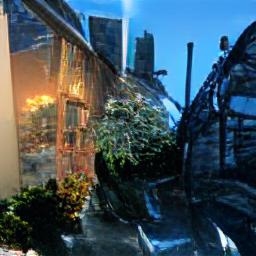I had some fun with an AI demo system that creates images from text, and had it make visuals based on the Distrikt descriptions. Here’s Libria.


I had some fun with an AI demo system that creates images from text, and had it make visuals based on the Distrikt descriptions. Here’s Libria.

